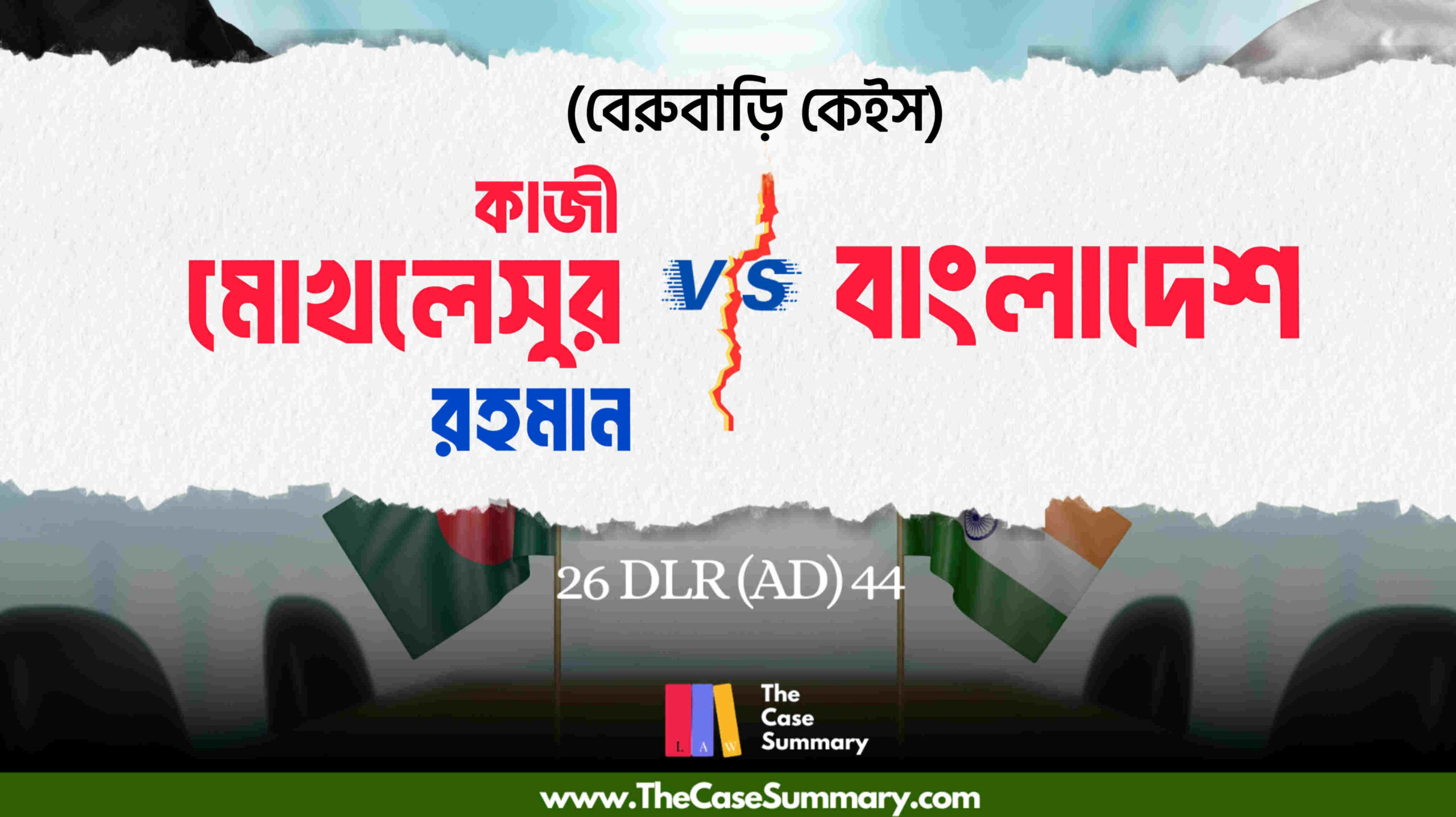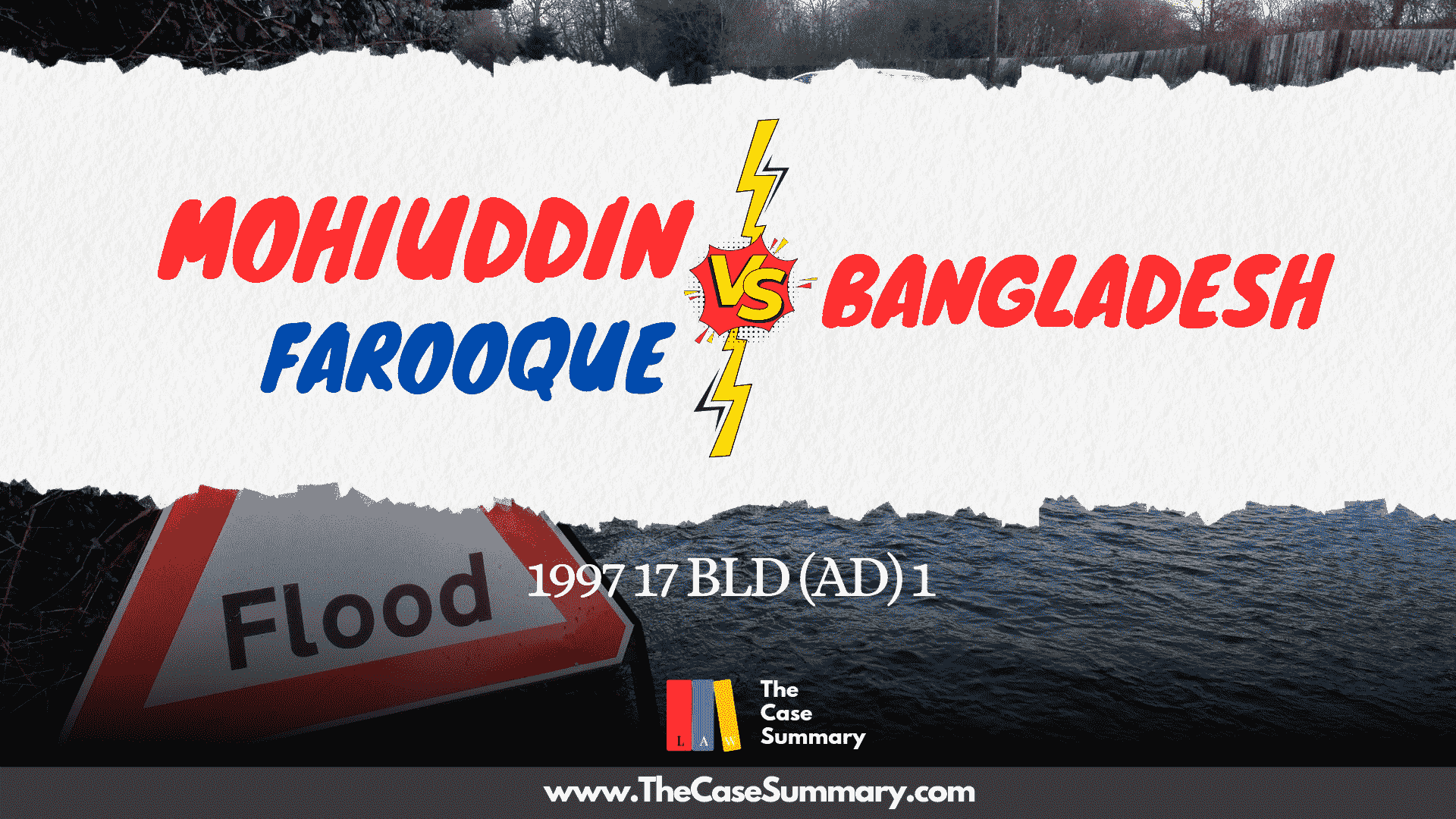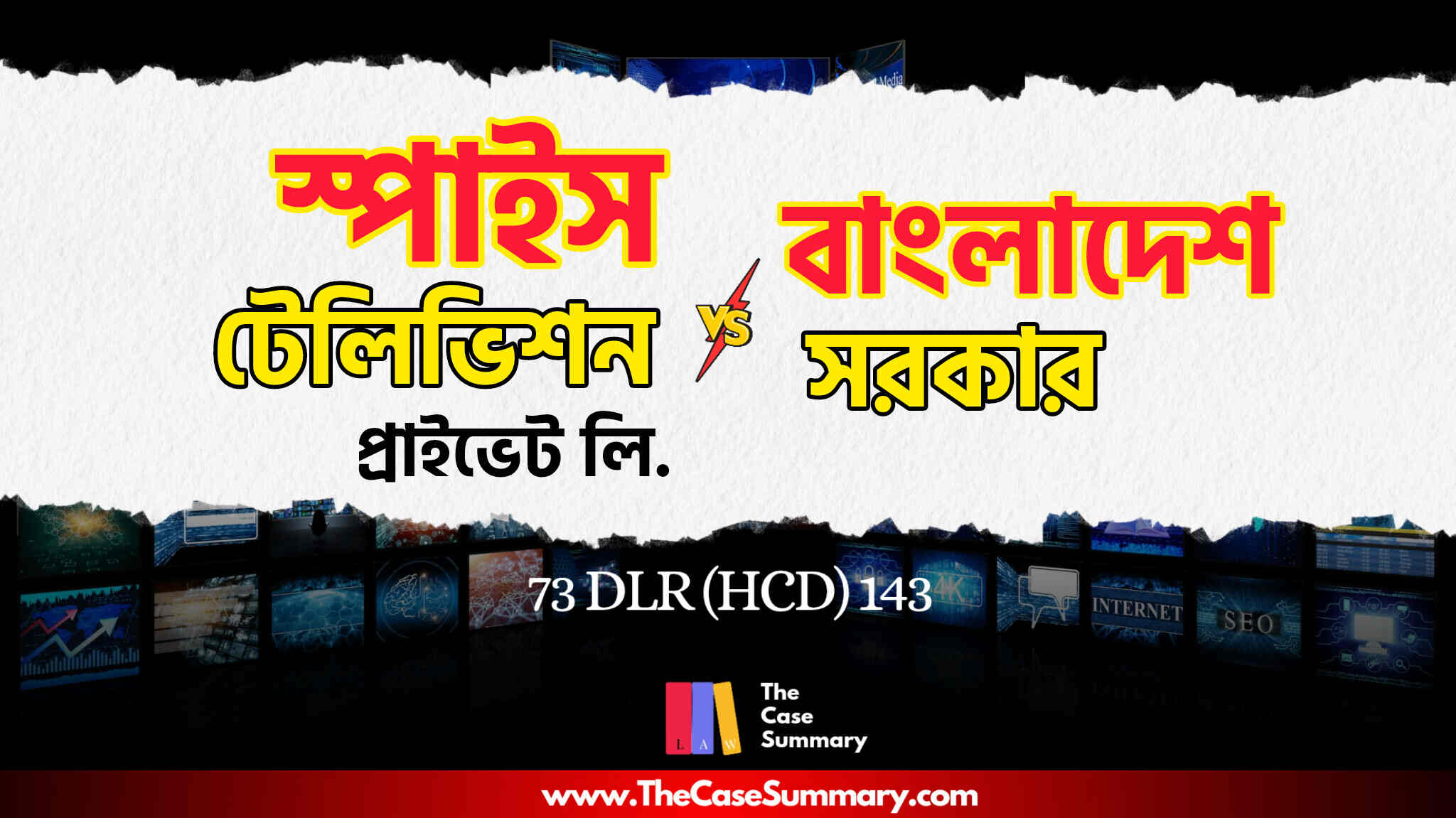State and Ors. vs Dosso and Ors.
Citation : 11 DLR (1959) 1
Jurisdiction : Pakistan
Appellant : State and Ors.
Respondent : Dosso and Ors.
Historical Background :
On the basis of the first Constitution (1956) of Pakistan, the position of the Governor General was replaced by that of President, and Iskander Mirza was officially elected as President by the Assembly. In October 1958, President Iskander Mirza, with the support of the army, suspended the 1956 Constitution. He declared martial law on 7 October 1958 due to political instability in the country and appointed the Commander-in-Chief of the Pakistan Army, General Ayub Khan, as the Martial Law Administrator. Accordingly, the Laws (Continuance in Force) Order was promulgated by the President on October 10, 1958.
Facts :
A murder took place in the Lora Lai District of Baluchistan by a person named Dosso. He was arrested and handed over to the Council of Elders, which was known as Loya Jirga. This council charged him under section 11 of FCR (Frontier Crimes Regulation) 1901. Jirga gave the punishment of the death penalty. Against the decision of Loya Jirga, the relatives of Dosso filed a writ petition in Lahore High Court. They challenged the conviction on the grounds that Section 11 of the FCR was repugnant in the ‘Equity before Law’ and the ‘Equal Protection of Law’ and the right to counsel embodied in Articles 5 and 7 of the 1956 Constitution.
The court found that the Frontier Crimes Regulation was contradictory to Articles 5 and 7 of the Constitution of 1956. Thus, the court gave a decision in favor of Dosso and decided the proceedings of the Council of Elders as null and void under FCR, 1901. Consequently, all the decisions, given based on FCR, especially after the enactment of the constitution of 1956, were called into question.
Later on, the Federal Government of Pakistan went into an appeal against the decision of the Lahore High Court. After a rustic political change, the hearing took place on the pre-decided date, 13 October 1956.
Issues :
1. Whether the Frontier Crimes Regulation (FCR) of 1901 was unconstitutional under Articles 5 and 7 of the 1956 Constitution.
2. Whether the Laws (Continuance in Force) Order, 1958, effectively created a new legal framework that nullified previous constitutional provisions, including those protecting fundamental rights.
Decisions :
The Supreme Court decided the case unanimously against the verdict of the Lahore High Court.
By answering one of the questions of law, the Supreme Court held that the 1958 Martial Law imposition was a kind of revolution (peaceful revolution). It was not resisted or opposed by common people; therefore, this revolution or Martial Law is legal as long as it satisfies common people. C.J. Munir gave landmarking reasoning. He stated, ‘If the attempt to break the Constitution fails, those who sponsor or organize it are judged by the existing Constitution as guilty of the crime of treason. But if the revolution is victorious in the sense that the persons assuming power under the change can successfully require the inhabitants of the country to conform to the new regime, then the revolution itself becomes a law-creating fact because thereafter its own legality is judged not by reference to the annulled Constitution but by reference to its own success.’
The Supreme Court mentioned Hans Kelsen’s legal theory of positivism at the time of giving the verdict. Hans Kelsen says, ‘If laws that are introduced under the old Constitution continue to be valid under the new Constitution, this is possible only because validity has expressly or tacitly been vested in them by the new Constitution.’ According to the legal theory of positivism, a revolution is characterized by the overthrow and replacement of the existing order with a new one in a manner that was not foreseen by the previous system. Thus, the judgment legalized martial law.
The Lahore court gave a verdict based on the 1956 constitution. And according to that constitution, the decision of FCR, 1901, was repugnant. However, the basis of the Lahore Court was null and void. Here, C.J. Munir reasoned that by the Proclamation of October 7, the President annulled the Constitution of 23rd March, 1956, and three days later, the President issued the Laws (Continuance in Force) Order, which effectively validated all laws, excluding the previous Constitution, that were in effect prior to the Proclamation. Thus, the FCR order also reinstated the jurisdiction of all courts, including the Supreme Court and High Courts.
A.R. Cornelius, J. reasoned that the Frontier Crimes Regulation (FCR) no longer needs to comply with the fundamental rights protections of the 1956 Constitution, as its validity is now determined solely by the Laws (Continuance in Force) Order, 1958. Since the 1956 Constitution’s prohibition on laws conflicting with fundamental rights was abolished by the Order, the FCR’s legitimacy is assessed exclusively under the new legal framework established post-1958.
According to Amiruddin Ahmad, J., despite the abrogation of the 1956 Constitution, the Laws (Continuance in Force) Order, 1958, aimed to govern Pakistan as closely as possible to the old constitution, but subject to presidential orders and martial law regulations. The Supreme Court and High Courts could still issue writs, except against orders made by the Chief or Deputy Chief Martial Law Administrator.
Finally, the Court stated that the Laws (Continuance in Force) Order freed the Frontier Crimes Regulation (FCR) from the constraints of the abrogated 1956 Constitution. At the same time, previous convictions and sentences under the FCR would remain valid. Trials pending before the Jirga would continue under the FCR’s provisions. Based on the majority decision in this case, the High Court’s direction and writ issued were overturned because they conflict with the new legal framework established by the Laws (Continuance in Force) Order.
Relevant Laws :
- Frontier Crimes Regulation (FCR), 1901 (British India and Later Pakistan)
- Section : 11
- Constitution of the Islamic Republic of Pakistan, 1956
- Article : 5, 7
- Laws (Continuance in Force) Order, 1958 (Pakistan)
Author :
1. Farah Arifin
Note : The Case Summary is a platform by the law students, for the law students. We aim to summarize the facts and decisions of various important cases in both Bangla and English with utmost caution. However, this platform is in no way a replacement for going through the complete judgements by the law students and we discourage any learner from relying on case summaries alone. Thank you



